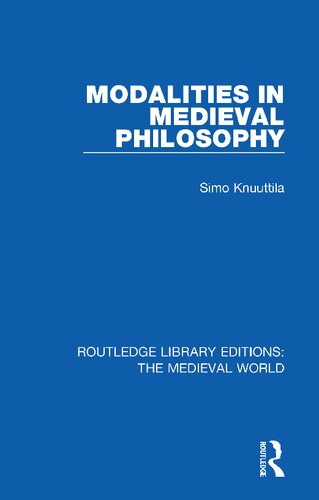

Most ebook files are in PDF format, so you can easily read them using various software such as Foxit Reader or directly on the Google Chrome browser.
Some ebook files are released by publishers in other formats such as .awz, .mobi, .epub, .fb2, etc. You may need to install specific software to read these formats on mobile/PC, such as Calibre.
Please read the tutorial at this link. https://ebooknice.com/page/post?id=faq
We offer FREE conversion to the popular formats you request; however, this may take some time. Therefore, right after payment, please email us, and we will try to provide the service as quickly as possible.
For some exceptional file formats or broken links (if any), please refrain from opening any disputes. Instead, email us first, and we will try to assist within a maximum of 6 hours.
EbookNice Team

Status:
Available4.8
29 reviewsOriginally published in 1993, Modalities in Medieval Philosophy looks at the idea of modality as multiplicity of reference with respect to alternative domains. The book examines how this emerged in early medieval discussions and addresses how it was originally influenced by the theological conception of God acting by choice. After a discussion of ancient modal paradigms, the author traces the interplay of old and new modal views in medieval logic and semantics, philosophy and theology. A detailed account is given of late medieval discussions of the new modal logic, epistemic logic, and the logic norms. These theories show striking similarities to some basic tenets of contemporary approaches to modal matters. This work will be of considerable interest to historians of philosophy and ideas and philosophers of logic and metaphysics.